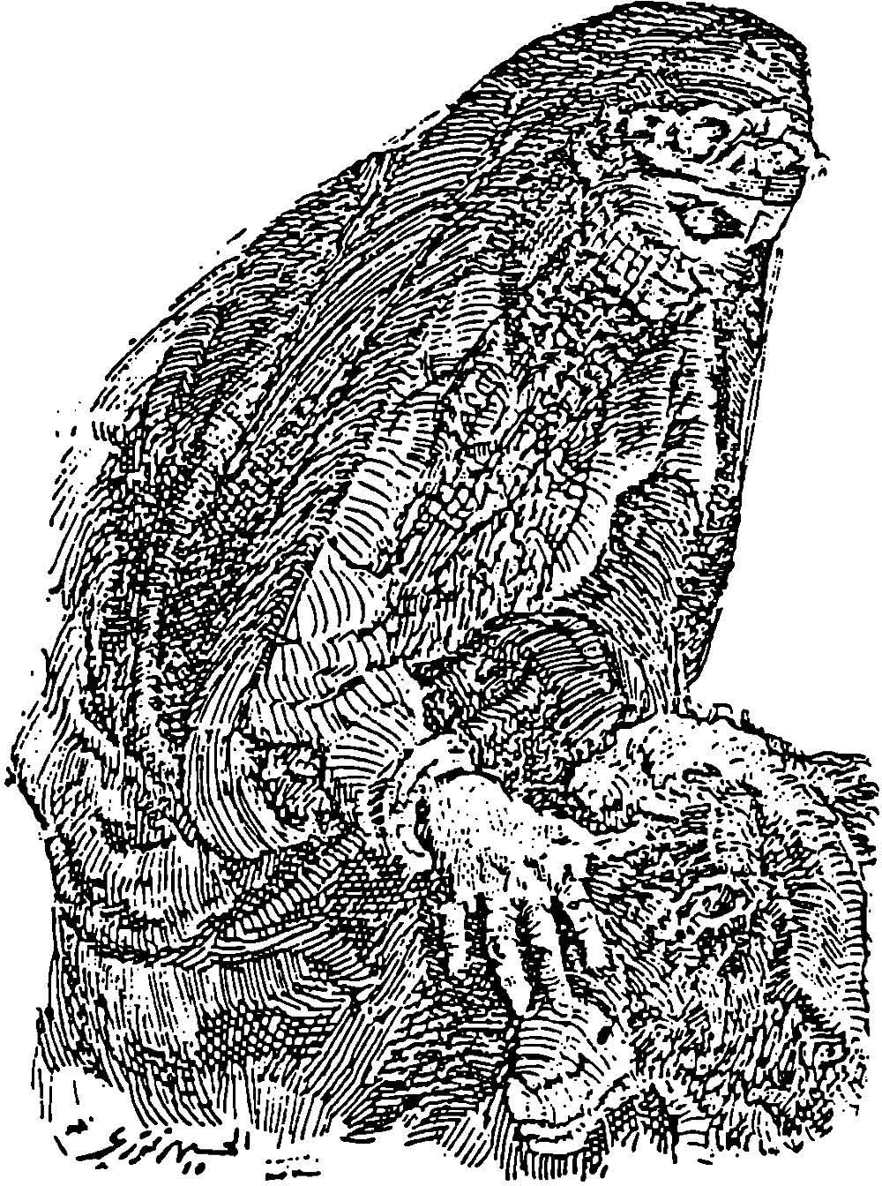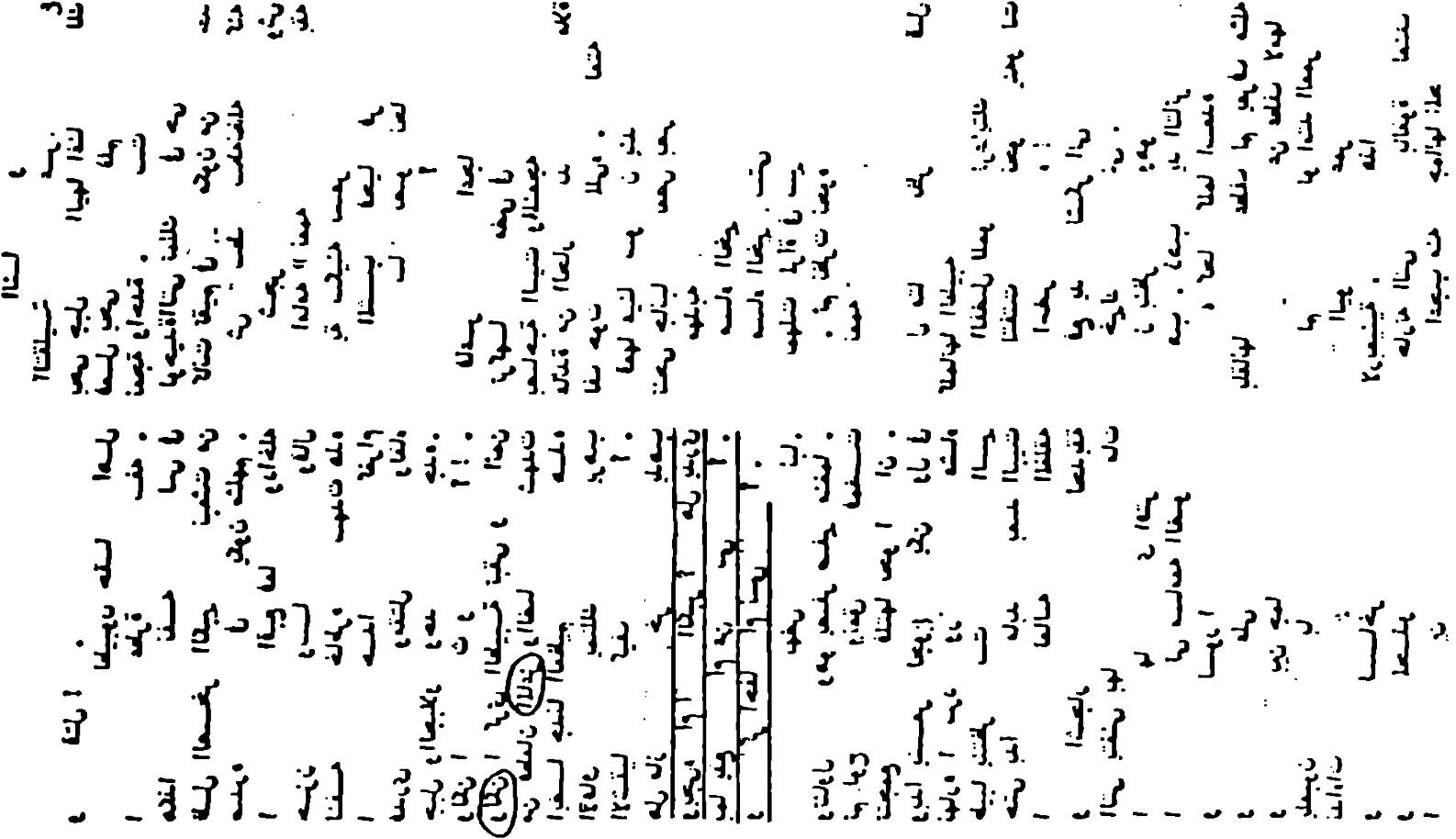Children of Gebelaawi (4 page)
on which the drug is placed with glowing charcoals, down to
the bottom of the water in the reservoir, and a bamboo pipe
draws the smoke up to the smoker's lips.
I have taken slight liberties with some of the foods and
drinks, replacing them with the nearest equivalent familiar
outside the Arab world. Buza is translated as 'ale'; it is an
illegally brewed drink, based on stale bread soaked in water.
Proper names have presented the most difficult problem,
and several solutions have been adopted side by side. Place
names have been given a standard guidebook spelling, except
that the jebel ofjebel Muqattam has been speltwith aj i n order
to retain the form familiar in English .Jebel, usually translated
'mountain', is such an important word in the book that the
Arabic form has been preferred; 'mountain' in any case has
the wrong associations for readers from more humid countries; besides, Jebel Muqauam rises only a few hundred feet above the level of Cairo.
Given names have usually been transliterated, using a
system that reflects standard Arabic pronunciation. Most readers will not want to be bothered with the fact that in Cairoj and Q are replaced by G and the glottal stop.J can be pronounced
as i n 'jam ' and Qas a throaty variety ofK. Most long vowels have
been represented by doubled letters: AA as in 'bazaar', EE as
in 'beet', 00 as in 'boot'. Departures from the strict system
have been allowed in a number of cases. In particular, G
replaces] in the names Gebel and Gebelaawi, i n order to avoid
confusion in the many puns on Gebel and the jebel. Narjis has
been spelt Narciss to recall the corresponding flower name.
Most nicknames have been translated, with a great deal of
freedom. They constitu te almost the only comic element i n an
otherwise serious book (though it is often sinister comedy) ,
and to fail to translate them would be a loss for the reader,
besides depriving the translator of a rare opportu nity for some
amusement. Note that the spelling of 'Bullrush' is deliberate;
XX
Introduction
the Arabic has the meani ng of impetuosity as well as a botanical sense. The name 'Omnibus' is particularly interesting; the obsolete colloquial word 'Swaars' is from Herr Schwartz, who
gave his name to the horse-drawn omnibus service that he
established i n Cairo in the mid-Nineteenth Century.
The most difficult problem is posed by the names of the
main heroes and heroi nes, all of which have meanings and
overtones. It would be possible to translate them, in the style
of Pilgrim's Progress, but all semblance of realism would be lost.
The solution adopted has been where possible to supply
nicknames, spari ngly used usually by an enemy or a neutral
figure: 'Blacky' Adh am; 'Little Mother' Umayma; 'Master Upi n-the-Air' Rifaa; 'Mr Know-All' Arafa; 'Passion-Flower' Awaatif.
Others have defeated me: 1-Iumaam (noble) ; Qadri (fateful) ;
Qaasim (distributor, alotter of fates, decider) , which also
echoes the parenting-name of the Prophet Muhammad, Abu
Qaasim, after his deceased infantson Qaasim ; Qamar ( ' moon ' ) ;
Bad ria (from badr, 'full moon ' and name of the first victory of
the Muslims over the polytheists). ldrees rhymes with lblees
(Diabolus) , the Islamic name of the Fallen Angel Lucifer, and
Qindeel withjibreel (Gabriel) , the name of the archangel who
transmitted the Holy Koran.
I have retai ned the 'continental' punctuation of dialogue
favoured by Mahfouz (and before him by English-speaking
writers such as james joyce) . It makes clear on the page the
structure and dramatic vividness of the dialogue, and it does
away with the usual sandstorm of inverted commas.
.x.xi





From the AI Abram edition, episode 55,
printed on 14th November 1959 (Chapter 66)
Words missing from the other edition are underlined: words differ-
ent from the other edition are circled .
���� it=J 1.� ;,.;. .:.4 ..;; .:......:J. ;;u �.;,o �u J@
•
L,J..;&ll tl.}l .;;...JJ ,L,:.Jt �I llJ ��· "'.�""'' •)Y.JI .;;,l.r'W. JJJJI
.:...;JJ 0 e!)l 1...,/J � ,�1 MLO..il �J �'II ��
� ..,� �· v1J �
�L..u
..,
"'
YoW - ,�l.a ,..: JJ�J
·
LS.a� .;.
;......:J � � w LS � .a"t 'I • �
_
,..-u �e
� - ;,..., �J -.��.;.;,
••
_
•
•
� ,_u, .:.4�1 r�&�
•• p e!)' .;.� � o:LWI :O.,rJI
JJL� � .;,u.au .,... _
...J; 4-U.JI
•
JJ'"' 1._.;;;)1; e! �
.;,If,: 1 ,jlt.:. � JJI,.... l..IIIZJ
�.@� .;,• tO...:.. 1+.,1& .ul
�� �J -J�J � j ,..-UJ �).:i� t� .;,o i,...::..<.....aWI ..1 .;,- .;,U'J
� ��� � .;,U' J , IJ,t& 4;.. � .-b- ...;;.,. oi.:.;JI � 4.\.IJI �,a
xxii

r.
t ·
l e!
.
.: � r \:
:. �
-
\:
c..
�
� - "'
..
...
-
..
' '"' :_ t'l (: { !<.. �
•
�
"'\:
·
.
�
•
•
·
·
.
-
.l" t.
c t·t'l:
c;;
- 1. �
r
-
f
.
.
i.;_
,
-t. '"'
•.
·
't.-t'f"
't"
.t•
� ,_
�
f
.r-' �
. • t .....
s,
'- -�
_
� ..
.
,;-
••
._ �
: ['
..
.:-
...
•
.
�
f t'
.._
..
't
L
f::.
.:•
t -
-€:)
!!. ·
;
· \:
e - � ...
[r,�·l
. l..
(
l ..
'r
'-. .... =
\·
.
\: .. t
�
�
1:: -
f r. -
·
•
.
l
_
'
.
, .
'\...
'L
.
' ' t. !;
.
'
.
...
� .:- l•
«;:
1
(""[� · t
� _r �-E
[
t. "l ..
c-
•
t .
f.
l 1 .
.
� .....
-
1:
.. J•
•
<..
·
�
t
£\=
'\ !i - �
-
� !\:
•
�
·l
.
c -=
.
.(
�
...
...
s.
·
'i
-•
c
•
t
cv.,r.C" t: ·
.
:_
..
t
· ,
l :!-
c..
- (
·
.
·(
"
- r
': r
t
'"
•
..
C· •
....
.
•
[
·
� t:.. f
: · -
c-
.r � •
-. ·2
C
�
c..
t.
t.
t f
-
•
L
J
..
't
\-- :- -
'!.,
s
-
...
t
�
., t
�
-